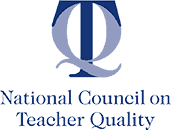
B.Ed. in Elementary Education (Licensure Track)
Engage Minds While Cultivating Dreams
Are you ready to impact young minds and lead from the classroom? Regent’s Bachelor of Education in Elementary Education is designed for students seeking to be Pre-K-6 teachers. You will explore diverse early childhood understandings through a range of study and performance assessments. You’ll also learn about human growth and development, curriculum and instructional procedures, and gain hands-on experience as an intern. Presented from a Christian worldview, courses are taught on campus by award-winning faculty in Virginia Beach.
ENJOY A REWARDING CAREER
Become a professional educator in public, private or Christian education.
GAIN STATE LICENSURE
Receive initial licensure in the Commonwealth of Virginia with an elementary education Pre-K-6 endorsement.
EXPAND YOUR INFLUENCE & IMPACT
Employ the power of education to change the trajectory of children’s lives.
Explore Scholarships
Explore exciting scholarship opportunities such as academic merit scholarships, honors college scholarships, and more! Learn about the scholarships for on-campus incoming freshmen: the $10,000 Freedom Scholarships, $4,000 Homeschool Scholarships and $4,000 Private School Scholarships. Explore all scholarships.
ALIGN YOURSELF WITH EXCELLENCE
Regent has been ranked among Top National Universities by the U.S. News & World Report for four years (2019, 2020, 2022 and 2023). We have also been recognized among the Top 20 Best College Campuses in America by Niche, 2019-20, and received an “A+” campus rating. Experience the Regent difference through the Bachelor of Education in Elementary Education degree program.
Please complete the Request Information form on this page to learn more about this program.
The School of Education’s educational leadership and teacher preparation programs and the College of Arts and Science’s bachelor’s in education programs are awarded full national accreditation from the Council for the Accreditation of Educator Preparation (CAEP) for a period of seven years, to 12/31/2030.
“A” rated for Early Reading Instruction and “A” rated for Classroom Management Instruction by the National Council on Teacher Quality (NCTQ).
On completing the bachelor’s degree in elementary education, you can:
- Discover how to design and manage a safe and supportive learning environment.
- Assess student learning and implement best instructional practices.
- Utilize educational technology to enhance classroom learning and parent engagement.
- Seek licensure in the Commonwealth of Virginia.
CAREER OPPORTUNITIES
- Early Childhood Teacher
- Elementary Teacher
- Middle School Teacher
- Licensed Preschool Teacher
- Christian Educator
Step 1: Apply to Regent University
Submit your application using the Regent University Online Application.
Note: If you are unable to complete our application due to a disability, please contact our Admissions Office at 757.352.4990 or admissions@regent.edu and an admissions representative will provide reasonable accommodations to assist you in completing the application.
Step 2: Submit Your Unofficial Transcripts
Submit your unofficial high school or college transcripts to regent.edu/items.
Upon submitting your application, you will receive an email requesting authorization for Regent University to obtain your official transcripts from your U.S. degree-granting institution. International transcripts must be evaluated by a NACES, AACRAO or NAFSA approved agency.
Step 3: Submit Your Government-Issued ID
To ensure academic integrity, Regent University requires a copy of a government-issued ID. Please submit a scanned copy or photograph of it to regent.edu/items.
Step 4: Submit Your FAFSA
Complete your Free Application for Federal Student Aid (FAFSA) at studentaid.gov Regent's school code is 030913.
Please feel free to contact the Office of Admissions at 757.352.4990 or admissions@regent.edu should you have any further questions about the application process.
Note: All items submitted as part of the application process become the property of Regent University and cannot be returned.
| Degree | Tuition Block Rate Per Semester | Credit Hours Per Semester | Tuition Rate Per Year |
|---|---|---|---|
| Students taking on-campus classes (fall & spring semesters) | $9,975 | 12 - 18 | $19,950 |
| Degree | Tuition Cost Per Credit Hour | Average Credit Hours Per Semester | Average Tuition Per Semester |
|---|---|---|---|
| Students taking on-campus classes (fall & spring semesters) | $665 | Under 12 | $7,980 |
| Students taking on-campus classes (fall & spring semesters) | $665 | Over 18 | $11,970 |
| Students taking on-campus classes (summer semester) | $665 | N/A | $1,995+ |
Student Fees Per Semester
| University Services Fee (On-Campus Students) | $850 (Fall & Spring) $700 (Summer) |
Housing Fees » | Military Admissions & Aid » | Cost of Attendance »
| Degree | Tuition Cost Per Credit Hour | Average Credit Hours Per Semester | Average Tuition Per Semester |
|---|---|---|---|
| Part-Time Students (3-11 Credit Hours Per Semester) | $450 | 6 | $2,700 |
| Full-Time Students (12+ Credit Hours Per Semester) | $395 | 12 | $4,740 |
Student Fees Per Semester
| University Services Fee (Online Students) | $700 |
| Degree | Tuition Block Rate Per Semester | Credit Hours Per Semester | Tuition Rate Per Year |
|---|---|---|---|
| Students taking on-campus classes (fall & spring semesters) | $9,493 | 12 - 18 | $18,986 |
| Degree | Tuition Cost Per Credit Hour | Average Credit Hours Per Semester | Average Tuition Per Semester |
|---|---|---|---|
| Students taking on-campus classes (fall & spring semesters) | $630 | Under 12 | $7,560 |
| Students taking on-campus classes (fall & spring semesters) | $630 | Over 18 | $11,340 |
| Students taking on-campus classes (summer semester) | $630 | N/A | $1,890+ |
Student Fees Per Semester
| University Services Fee (On-Campus Students) | $850 (Fall & Spring) $700 (Summer) |
Housing Fees » | Military Admissions & Aid » | Cost of Attendance »
| Degree | Tuition Cost Per Credit Hour | Average Credit Hours Per Semester | Average Tuition Per Semester |
|---|---|---|---|
| Part-Time Students (3-11 Credit Hours Per Semester) | $450 | 6 | $2,700 |
| Full-Time Students (12+ Credit Hours Per Semester) | $395 | 12 | $4,740 |
Student Fees Per Semester
| University Services Fee (Online Students) | $700 |




